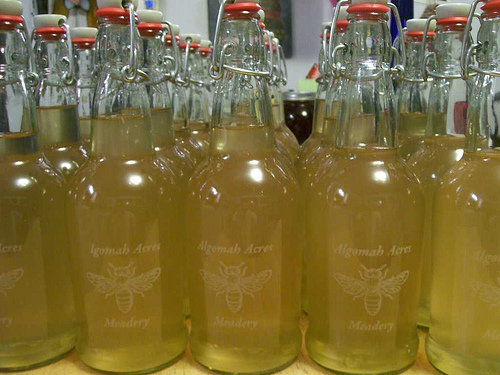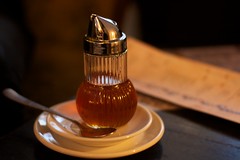I’ve posted a few times on sources for free online courses and materials and thought I’d put together a compilation of them in case there are any other people who want to better themselves but don’t have time or $$ to go to a university and get a degree. These are all great sources for more material if you want to better yourself or you just want the upper hand before taking a course. edit: It looks like these types of university sites are getting more popular, and several more states have added courses online for any interested party’s access. I’ll add them at the bottom as I find them if I think they are noteworthy.
MIT put together 1,800 of their courses in an online catalogue that includes books, audio lectures, video lectures, tests, study material, and class overviews. This is an extremely well built resource and is probably the best source out there for finding complete free courses online. They have recently extended their courses to high school classes, also.
http://ocw.mit.edu/OcwWeb/web/hom…/index.htm
OEDb, Online Education Database has put together tons of online courses offered through various schools. Hundreds of the classes are totally free, some of them you have to pay for, but those that do will count toward a degree. One particularly useful page is the “Skip the Tuition: 100 Free Podcasts from the Best Colleges in the World” where you can find some very comprehensive podcasts on a variety of subjects. I burn these to CDs and play them in my car on the way to and from work (an almost 2 hour drive, for me).
http://oedb.org/
Lecturefox offers Ivy League University level lectures, notes, and videos for free. You can click through the links to be taken directly to the course or lecture as offered by the university it is listed under. This is possibly the simplest site to navigate and is great for using as a shortcut to free material not advertised by a university. Many of the listings are not specifically for a class, but are extremely educational.
http://lecturefox.com/
University of Notre Dame offers their courses from a different perspective than MIT, or any of the other USA-based universities. They have tons of classes presented to anybody interested enough to view them.
http://ocw.nd.edu/
UC Berkeley offers webcasts and downloadable podcasts of their current courses organized by semester – the coolest part is that these lectures are posted the day after they are given in the class. Thanks for this one, kittycalbard!
http://webcast.berkeley.edu/
ITunesU looks to be another handy resource for audio lectures. I don’t have ITunes, so I can’t vouch for these first hand, but they advertise: “Presentations, performances, lectures, demonstrations, debates, tours, archival footage — school is about to become even more inspiring.” Thanks for this one, KellyGates!
http://www.apple.com/education/itunesu/
Utah State has a setup almost identical to the MIT site, since it uses the exact same OpenCourseWare engine MIT built to present their classes. It looks like Utah State has fewer courses (still a heck of a lot of them), but the topics are more varied. Their site has a link to all of the other OpenCourseWare sites around the world, which each probably deserve their own posting.
http://ocw.usu.edu/
Tufts University in Massachusetts publishes their course materials and the actual class content on their website.
http://ocw.tufts.edu/
The Johns Hopkins Bloomberg School of Public Health has a website geared toward educating the public about health related information. It is not as intensive or as varied as most of the OpenCourseWare sites, but it does have some very good information.
http://ocw.jhsph.edu/
The Perdue Online Writing Lab offers over 200 resources to better your writing style in any category from fiction and prose, to cover sheets and business proposals. I got this link through the links CatchMeChillin submitted in the wikipost.
http://owl.english.purdue.edu/
OpenLearn LearningSpace offers courses and articles on a dozen topics. Some of them are very extensively done, and could be a great resource to better yourself. The site is simple and easy to navigate.
http://openlearn.open.ac.uk/
Wikiversity is a traditional Wiki site geared toward community knowledge presented in the style a university would present it. It is built by professors, researchers and students and can be updated by anybody, just like any Wiki site. It is really cool, and worth checking out just to see all the interesting stuff you can do there.
http://en.wikiversity.org/
ALL OF THE OCW SITES IN THE NON-ENGLISH SPEAKING WORLD are listed here. There is a huge network or resources since OpenCourseWare put together their engine, and it keeps growing.
Chinese Open Resources for Education offers free conferences, seminars, courses, and materials – all are written and presented in Chinese.
http://www.core.org.cn/
FETP offers a Vietnamese version and an english version of their site (just click the language button in the top right corner). The courses are predominantly presented in Vietnamese and include most of the books, and source material along with many complete classes.
http://ocw.fetp.edu.vn/index.cfm
Japan OpenSourceWare Consortium offers their site in Japanese and English. They have a very comprehensive offering presented in Japanese, and a few courses partly in English.
http://www.jocw.jp/index_j.htm
OOPS has just started up their site. They are very similar to the previous sites, but are located in Taiwan.
http://www.myoops.org/twocw/
Paris Tech Grad School offers many courses, all presented in French.
http://graduateschool.paristech.org/
Universia MIT offers an unbelievably huge selection of MIT courses in Spanish or Portuguese and links to Universities all over the Spanish and Portuguese speaking world.
http://mit.ocw.universia.net/
If I find more good ones, I’ll be sure to put them up on here. If you find one, post it in the comments and I’ll add it to the list.
These courses are not for credit. They are offered for the propagation of education worldwide.
A college education does not mean a college degree.

